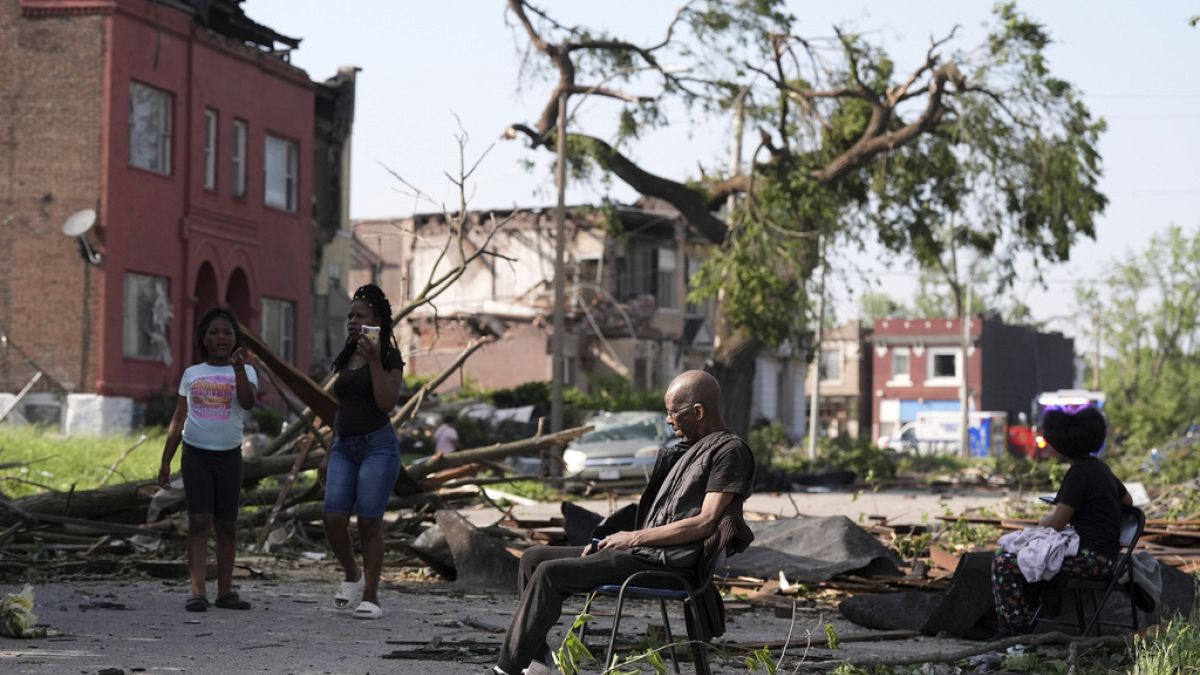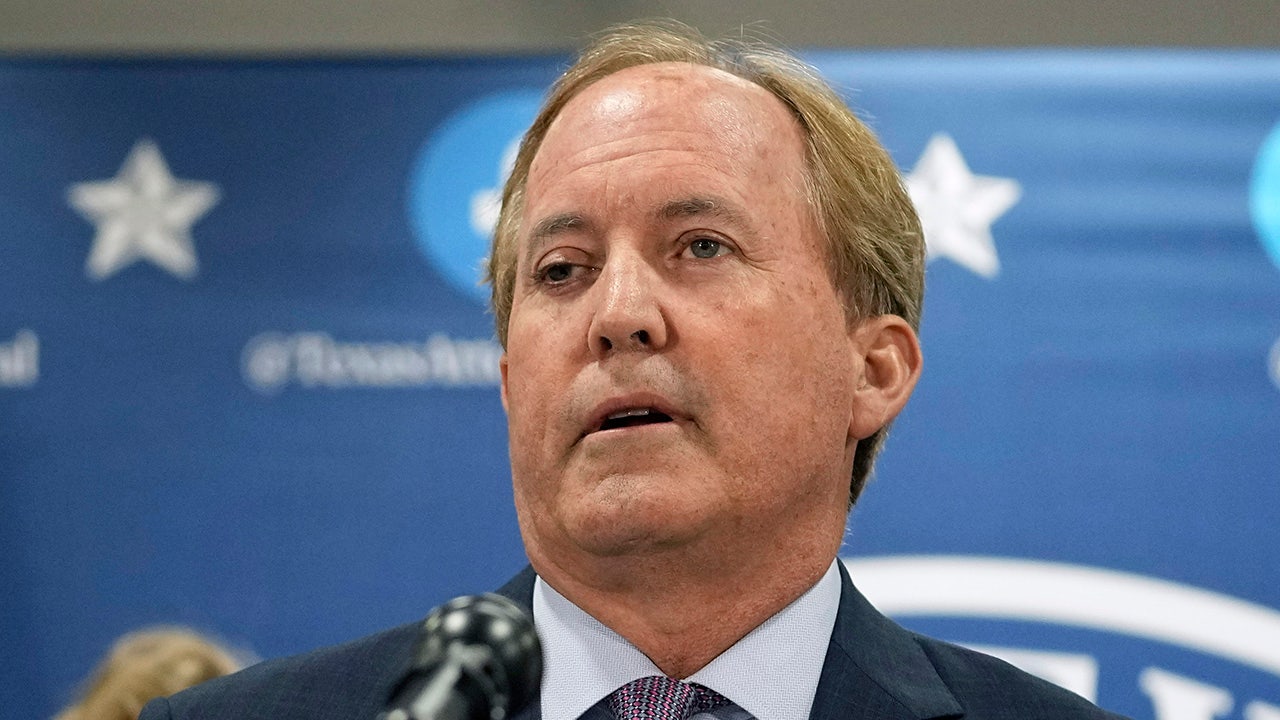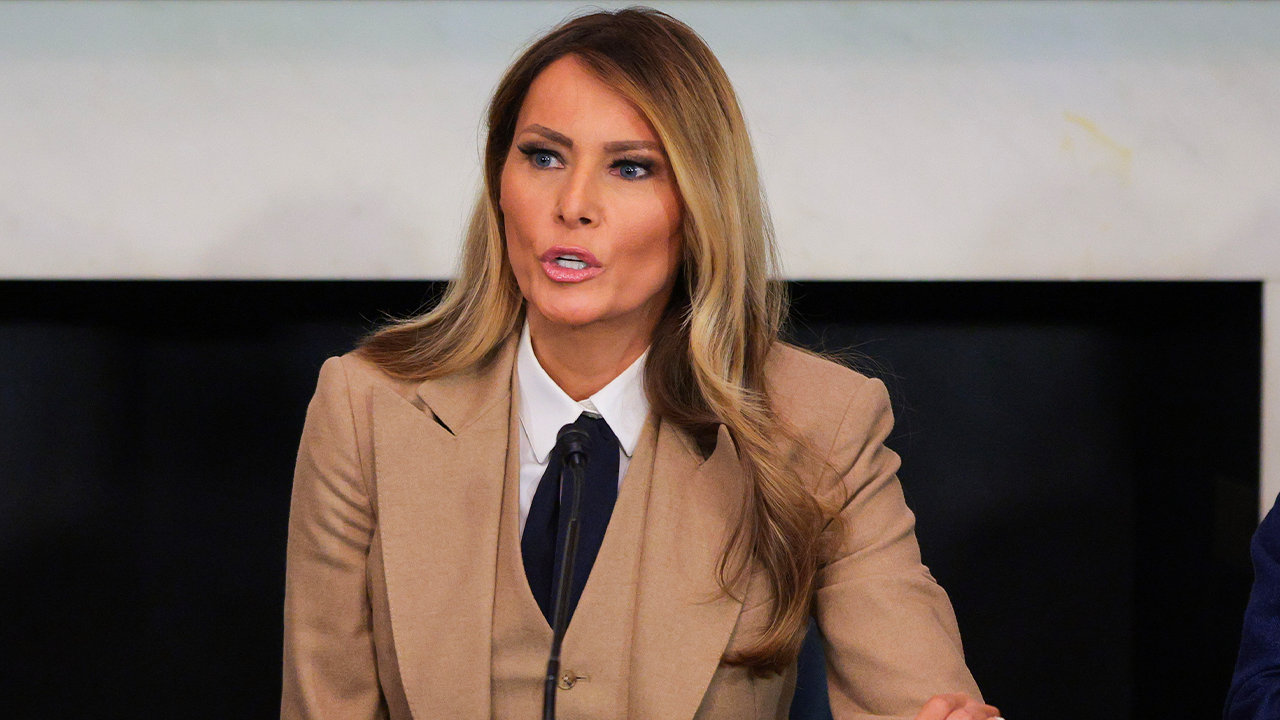New York
Judge Should Consider Contempt of Court Action Over Rikers, Monitor Says

A federal monitor overseeing New York City’s violent and dangerous jails asked a judge on Monday to consider holding the Department of Correction and its commissioner in contempt for disobeying court orders, opening the possibility that officials could be punished for failing to improve conditions.
The monitor, Steve J. Martin, wrote in a report filed in Manhattan federal court that the “pace of reform has stagnated,” and that there has “been a disturbing level of regression” in several areas, including investigations into staff misconduct after episodes of excessive force.
Conditions on Rikers Island have only worsened since the Correction Department developed an improvement plan a year ago, Mr. Martin wrote. Doors are still not properly secured, correction officers continue to abandon posts and detainees often gather in high-security areas, he said. During routine searches, officers miss weapons, which have later been used in violent episodes, Mr. Martin said.
Four people have died at Rikers this year. Last year, 19 people died in city jails or at hospitals soon after release — the deadliest year in nearly a decade.
For the first time, Mr. Martin urged the federal judge, Laura T. Swain, to begin proceedings to decide whether to hold the city, the Correction Department and Commissioner Louis A. Molina in contempt of court. At a hearing next month, Judge Swain could decide whether to start contempt proceedings.
Contempt is “a potent weapon meant to coerce a party into future compliance with a court order,” Mr. Martin wrote, one that he has not recommended since appointed to oversee the jails in 2015. He said he “does not make such a recommendation to the court lightly and, in fact is doing so only after it has exhausted other available strategies.”
Kayla Mamelak, a City Hall spokeswoman, said in a statement that the city remains “committed to continued reform and working with the monitor.”
“We are prepared to fully defend against any contempt motion, and the record will reflect the important and necessary steps New York City has taken to make continued progress,” she added.
The filing on Monday is one of around 40 reports and letters that Mr. Martin has sent to the court since 2015, when the city entered a landmark settlement that mandated regular updates on conditions in the jails. The settlement was the outcome of a class-action lawsuit brought by the Legal Aid Society and private law firms that sought to stamp out an endemic culture of violence.
Mr. Molina has faced mounting pressure to reduce violence or risk the appointment of a receiver — an outsider appointed to take over management of the jails.
The report “makes clear that all efforts to date to change the New York City Department of Correction’s pattern of brutality have failed,” Mary Lynne Werlwas, director of the Prisoners’ Rights Project at the Legal Aid Society, said in a statement Monday.
“Continuing down the same path — promises of change, monitor’s reports that lead nowhere, court orders that get ignored — will merely cause more injuries and death,” she added. “The need for an independent authority over the jails is clearer than ever.”
Holding officials and agencies in contempt is a stern punishment, but would let New York City retain control of Rikers, which officials plan to close in favor of smaller jails around the city.
Stripping a city, county or state of control over jails or prisons is rare and complex. A federal judge last year said the court would appoint a receiver to oversee the Raymond Detention Center in Hinds County, Miss., following years of mismanagement. In 2005, California was forced to relinquish authority over its prison health care system following a lawsuit detailing abuses.
Mr. Martin’s recommendation could nudge the Correction Department in a positive direction, said Hernandez D. Stroud, senior counsel at the Brennan Center for Justice at New York University School of Law.
“If there’s that threat that contempt could occur, that too could be an effective motivator,” he said. A defense of “good faith” would not hold off such a ruling, Mr. Stroud said. “They can still be held in contempt even if they say they gave it their best shot,” he said.
He noted that courts have broad discretion in what punishments accompany a finding of contempt, but fines could be levied against the city.
In Mr. Molina’s first 10 months, Mr. Martin appeared to support him: In October, he told Judge Swain that the commissioner had “courage to make unpopular changes and creativity in his approach to solving decades-old problems.”
But Mr. Molina took steps to limit the public release of damaging information about the jails. He revoked an oversight panel’s unrestricted access to security footage and reversed a policy that required the agency to notify the public about deaths inside the facilities.
“Individuals want to curate their own fact pattern to reach the conclusion that they would like the public to have,” Mr. Molina said in an interview in June.
The next day, Mr. Martin released a report that accused Mr. Molina and Correction Department leadership of concealing information about violence that endangered staff and detainees.

New York
Are You Smarter Than a Billionaire?

Over the course of one week, some of the richest people in the world descended on New York’s auction houses to purchase over $1 billion of art. It might have played out a little differently than you would have expected.
Can you guess which of these works sold for more?
Note: Listed sale prices include auction fees.
Image credits: “Untitled,” via Phillips; “Baby Boom,” via Christie’s Images LTD; “Hazy Sun,” With permission of the Renate, Hans & Maria Hofmann Trust/Artists Rights Society (ARS), New York; via Christie’s Images LTD; “Petit Matin,” via Christie’s Images LTD; “Concetto spaziale, La fine di Dio,” Artists Rights Society (ARS), New York/SIAE, Rome; via Sotheby’s; “Baroque Egg with Bow (Orange/Magenta),” via Sotheby’s; “The Last Supper,” The Andy Warhol Foundation for the Visual Arts, Inc./Licensed by Artists Rights Society (ARS), New York; via Christie’s Images LTD; “Campbell’s Soup I,” The Andy Warhol Foundation for the Visual Arts, Inc./Licensed by Artists Rights Society (ARS), New York; via Christie’s Images LTD; “Miss January,” via Christie’s Images LTD; “Fingermalerei – Akt,” via Sotheby’s; “Grande tête mince (Grande tête de Diego),” Succession Alberto Giacometti/Artists Rights Society (ARS), NY; via Sotheby’s; “Tête au long cou,” Succession Alberto Giacometti/ARS, NY/Photos: ADAGP Images/Paris 2025; via Christie’s Images LTD; “Revelacion,” Remedios Varo, Artists Rights Society (ARS), New York / VEGAP, Madrid; via Christie’s Images LTD; “Le jardin nocturne,” Foundation Paul Delvaux, Sint-Idesbald – ARS/SABAM Belgium; via Christie’s Images LTD.
Produced by Daniel Simmons-Ritchie.
New York
Video: How a Mexican Navy Ship Crashed Into the Brooklyn Bridge

On Saturday, a Mexican Navy ship on a good will tour left a New York City pier bound for Iceland. Four minutes later, it crashed into the Brooklyn Bridge. [Spanish] “It’s falling!” [English] “No way!” Here’s what happened. The Cuauhtémoc had been docked on the Lower East Side of Manhattan for four days, open to visitors looking for a cultural experience. As the ship prepared to leave on Saturday night, a tugboat arrived to escort it out of its pier at 8:20 p.m. The ship’s bow, the front of the vessel, faced Manhattan, meaning it would need to back out of its berth into the East River. As the Cuauhtémoc pulled away from shore, the tugboat appeared to push the side of the ship, helping to pivot the bow south toward its intended route. The river was flowing northeast toward the Brooklyn Bridge and the wind was blowing in roughly the same direction, potentially pushing the ship toward a collision. Photos and videos suggest the tugboat was not tied to the ship, limiting its ability to pull the ship away from the bridge. The Cuauhtémoc began to drift north, back first, up the river. Dr. Salvatore Mercogliano, who’s an adjunct professor at the U.S. Merchant Marine Academy, told The Times that the ship appeared to be giving off a wake. This suggests its propellers may have been running in reverse, pushing it faster toward the bridge. The tugboat sped alongside the ship as it headed north, possibly trying to get in front of it and help the ship maneuver the other way. But it was unable to cut the ship off or reverse its course. All three masts crashed into the underside of the Brooklyn Bridge at approximately 8:24 p.m., four minutes after the ship had left the pier, causing the top sails to collapse. Crew members standing on the masts during the collision were thrown off entirely. Others remained hanging from their harnesses. A New York City patrol boat arrived about eight minutes after the collision, followed quickly by a fire department boat. Additional law enforcement and emergency medical services removed the wounded for treatment. According to the Mexican Navy, two of the 227 people aboard the ship were killed and 22 others were injured.
New York
Audio Data Shows Newark Outage Problems Persisted Longer Than Officials Said

On April 28, controllers at a Philadelphia facility managing air traffic for Newark Liberty International Airport and smaller regional airports in New Jersey suddenly lost radar and radio contact with planes in one of the busiest airspaces in the country.
On Monday, two weeks after the episode, Sean Duffy, the secretary of transportation, said that the radio returned “almost immediately,” while the radar took up to 90 seconds before it was operational.
A Times analysis of flight traffic data and air traffic control feed, however, reveals that controllers were struggling with communication issues for several minutes after transmissions first blacked out.
The episode resulted in multiple air traffic controllers requesting trauma leave, triggering severe flight delays at Newark that have continued for more than two weeks.
Several exchanges between pilots and controllers show how the outage played out.
Outage Begins
Air traffic recordings show that controllers at the Philadelphia facility first lost radio and radar communications for about a minute starting just before 1:27 p.m., after a controller called out to United Flight 1951, inbound from Phoenix.
The pilot of United 1951 replied to the controller’s call, but there was no answer for over a minute.
1:26:41 PM
Controller
OK, United 1951.
1:26:45 PM
Pilot
Go ahead.
1:27:18 PM
Pilot
Do you hear us?
1:27:51 PM
Controller
How do you hear me?
1:27:53 PM
Pilot
I got you loud and clear now.
Two other planes reached out during the same period as United 1951 — a Boeing 777 inbound from Austria and headed to Newark, and a plane whose pilot called out to a controller, “Approach, are you there?” Their calls went unanswered as well.
Radio Resumes, With Unreliable Radar
From 1:27 to 1:28 p.m., radio communications between pilots and controllers resumed. But soon after, a controller was heard telling multiple aircraft about an ongoing radar outage that was preventing controllers from seeing aircraft on their radarscopes.
One of the planes affected by the radar issues was United Flight 674, a commercial passenger jet headed from Charleston to Newark.
1:27:32 PM
Pilot
United 674, approach.
1:27:36 PM
Controller
Radar contact lost, we lost our radar.
1:30:34 PM
Controller
Turn left 30 degrees.
1:31:03 PM
Pilot
All right, we’re on a heading of 356. …
1:31:44 PM
Controller
I see the turn. I think our radar might be a couple seconds behind.
Once the radio started operating again, some controllers switched from directing flights along their planned paths to instead providing contingency flight instructions.
At 1:28 p.m., the pilot of Flight N16NF, a high-end private jet, was called by a controller who said, “radar contact lost.” The pilot was then told to contact a different controller on another radio frequency.
About two and a half minutes later, the new controller, whose radar did appear to be functioning, instructed the pilot to steer towards a location that would be clear of other aircraft in case the radio communications dropped again.
Flight N426CB, a small private jet flying from Florida to New Jersey, was told to call a different radio frequency at Essex County Airport, known as Caldwell Airport, in northern New Jersey for navigational aid. That was in case the controllers in Philadelphia lost radio communications again.
1:27:57 PM
Controller
If for whatever reason, you don’t hear anything from me further, you can expect to enter right downwind and call Caldwell Tower.
1:29:19 PM
Controller
You just continue on towards the field. They’re going to help navigate you in.
This is in case we are losing our frequencies.
1:29:32 PM
Pilot
OK, I’m going over to Caldwell. Talk to you. Have a good afternoon.
Minutes Later, Radar Issues Persist
According to the Federal Aviation Administration, aircraft reappeared on radarscopes within 90 seconds of the outage’s start, but analysis of air traffic control recordings suggest that the radar remained unreliable for at least some radio frequencies for several minutes after the outage began around 1:27 p.m.
At 1:32 p.m., six minutes after the radio went quiet, Flight N824TP, a small private plane, contacted the controller to request clearance to enter “Class B” airspace — the type around the busiest airports in the country. The request was denied, and the pilot was asked to contact a different radio frequency.
1:32:43 PM
Pilot
Do I have Bravo clearance?
1:32:48 PM
Controller
You do not have a Bravo clearance. We lost our radar, and it’s not working correctly. …
If you want a Bravo clearance, you can just call the tower when you get closer.
1:32:59 PM
Pilot
I’ll wait for that frequency from you, OK?
1:33:03 PM
Controller
Look up the tower frequencies, and we don’t have a radar, so I don’t know where you are.
The last flight to land at Newark was at 1:44 p.m., but about half an hour after the outage began, a controller was still reporting communication problems.
“You’ll have to do that on your own navigation. Our radar and radios are unreliable at the moment,” a Philadelphia controller said to a small aircraft flying from Long Island around 1:54 p.m.
Since April 28, there has been an additional radar outage on May 9, which the F.A.A. also characterized as lasting about 90 seconds. Secretary Duffy has proposed a plan to modernize equipment in the coming months, but the shortage of trained staff members is likely to persist into next year.
-

 World1 week ago
World1 week agoSevere storms kill at least 21 across US Midwest and South
-

 News1 week ago
News1 week agoWatch: Chaos as Mexican Navy ship collides with Brooklyn Bridge, sailors seen dangling – Times of India
-

 News1 week ago
News1 week agoMaps: 3.8-Magnitude Earthquake Strikes Southern California
-

 Politics1 week ago
Politics1 week agoTexas AG Ken Paxton sued over new rule to rein in 'rogue' DAs by allowing him access to their case records
-

 Politics1 week ago
Politics1 week agoAfghan Christian pastor pleads with Trump, warns of Taliban revenge after admin revokes refugee protections
-

 World1 week ago
World1 week agoPortuguese PM’s party set to win general election, fall short of majority
-

 Politics1 week ago
Politics1 week agoTrump, alongside first lady, to sign bill criminalizing revenge porn and AI deepfakes
-

 News1 week ago
News1 week agoVideo: One Person Dead in Explosion Outside Palm Springs Fertility Clinic















